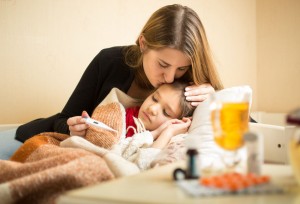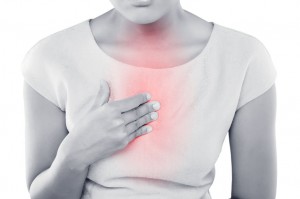Child Fever Dos and Don’ts
Tuesday, November 20th, 2018
 Having a sick child is stressful, especially when they have a fever. As a parent, you immediately start feeling anxiety when your child has a fever. Fevers generally mean your child is fighting off some form of illness, but how worried should you be? You don’t want to overreact, but you also don’t want to underreact and miss something important. Below are the dos and don’ts of childhood fevers to help you figure out the best course of action.
Having a sick child is stressful, especially when they have a fever. As a parent, you immediately start feeling anxiety when your child has a fever. Fevers generally mean your child is fighting off some form of illness, but how worried should you be? You don’t want to overreact, but you also don’t want to underreact and miss something important. Below are the dos and don’ts of childhood fevers to help you figure out the best course of action.
Do
-
Do bring a baby who is under 3 months old with a rectal temperature of 100.4 °F to a doctor immediately. This type of temperature can be an indicator of a serious infection in a baby that age.
-
Do call your doctor right away if the child is between 3-6 months with a temperature above 101°F
-
Do call the doctor if a child above 6 months is acting strangely with a fever between 102°F (38.8°C) to 102.9°F (39.4°C)
-
Do call the doctor if a child is above 6 months and has a fever of 103°F
-
Do give your child plenty of fluid and popsicles to help their body cool down
-
Do make sure your child is well rested
-
Do give your child blankets if they have the chills
-
Do give your child acetaminophen if they are older than 3 months, are fussy, and have a temperature above 100.2 °F
-
Do watch for any unusual symptoms like seizures, swelling, wheezing, or unresponsiveness
Don’t
-
Don’t give your child aspirin to bring down the fever, since this is very dangerous for children
-
Don’t bundle them up in very warm clothing
-
Don’t give a baby under two months any medication unless you speak with the doctor
-
Don’t force your child to eat if they do not want to
-
Don’t be concerned about brain damage from a high fever; this would not occur until the child had a fever above 107°
In most children, a fever is not a major cause for concern, and they will often break on their own. However, it is never a bad idea to bring your child in to be checked out by a doctor if they need antibiotics to better fight off their illness.

